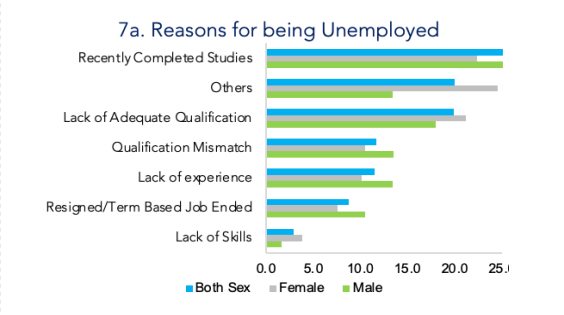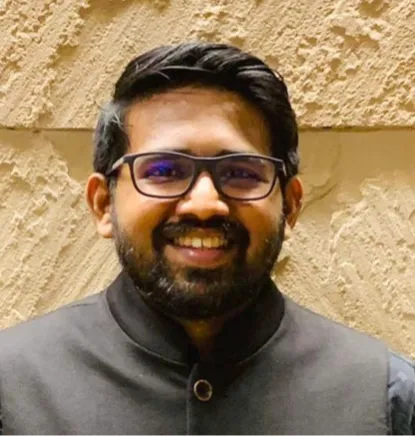-
CENTRES
Progammes & Centres
Location
Bhutan is redefining its nationalism by embracing technology, mainstreaming or mandating national services, and symbolising the Gelephu Mindfulness City project.

Image Source: Getty Images
On 7 October 2025, the King of Bhutan, Jigme Khesar Namgyel Wangchuck, announced the launch of Pelsung–a new national initiative “to engage Bhutanese youth in developing creative and practical solutions for the Gelephu Mindfulness City (GMC)” project. This announcement comes at a time when Bhutan is grappling with youth unemployment (17.8 percent) and a significant brain drain that is undermining its quest for sustainable development. To retain the youth, the state is redefining its nationalism by creating and presenting new opportunities. Bhutan, today, is embracing technology, mainstreaming, introducing and mandating national services, and symbolising the GMC.
Earlier this year, Prime Minister (PM) Tshering Tobgay termed migration and exodus as an existential threat to the country. The seriousness of the issue cuts to the core of Bhutanese nationalism. Since the establishment of the hereditary monarchy (in 1907), the Bhutanese people have been a critical aspect of the country’s national imagination, identity and survival. This was further reinforced from the 1960s, following the strengthening of their immigration and citizenship laws, along with the adoption of a national language and dress. Even the concept of Gross National Happiness (GNH) not only defined the way Bhutanese people lived, but also created a unique identity for the nation.
Since the establishment of the hereditary monarchy (in 1907), the Bhutanese people have been a critical aspect of the country’s national imagination, identity and survival.
However, Bhutan embraced democracy in 2008, with the King remaining a significant figure. The political shifts coincided with widespread welfare policies (free education and health), increasing access to the internet, media, and social media, which largely impacted the youth’s understanding of the nation. Their sense of nationalism continues to remain less channelled, with the old brand of nationalism—coupled with tradition, religion, and culture—neglecting the country’s youth and their lifestyle. Today’s generation, which is more exposed to the world than older generations, is frustrated with structural economic issues and has migrated elsewhere, sensing better opportunities, working conditions, and salaries. Nearly 50 percent of the total migrant population are civil servants, hollowing out the state capacity, bureaucracy, and public sector. With over 9 percent of the country’s population migrating in recent years, and the country transitioning into an ageing society by 2027, Bhutan’s survival is at stake, compelling it to reinvent itself.
Bhutan found a new sense of nationalism that could cater to the younger generation by embracing technology. In early 2019, the king hinted at leveraging technology to enhance growth. The COVID-19 pandemic exacerbated this need. In his address during the 112th National Day Celebrations, he remarked, “Our neighbours, India and China, are experiencing unprecedented economic growth, propelled by technological advances in Artificial Intelligence, Robotics, Automation, Big Data, Blockchain, Quantum Computers, and FinTech — Digital Currencies, Digital Wallets, Digital Banking. The world is changing rapidly. We cannot afford to avoid what we don’t yet understand and hope for the best. Such an attitude will cost us our national objective of self-reliance.”
In fact, Bhutan saw technology as a means to unlock the potential of GNH and improve economy, governance, welfare, and sustain culture and ecology. That year, the Digital Drukyul Flagship Programme (DDFP) was launched to lay the foundation for e-governance, digitalisation of public services, digital banking, and a fintech ecosystem. Around that time, Bhutan also embraced bitcoin mining. In 2022, the government established GovTech to accelerate digital transformation, efficiency, and effectiveness across government agencies. By 2025, Bhutan became the fifth-largest holder of bitcoin (worth 1.4 billion US$, which is 40 percent of its Gross Domestic Product). It utilised the bitcoin strategy to enhance capital inflows and revenues while covering its expenses. It is also using blockchain technology for its national digital ID project.
In 2022, the government established GovTech to accelerate digital transformation, efficiency, and effectiveness across government agencies.
However, this is not merely a top-to-bottom initiative. By rapidly embracing technology, Bhutan is also equally keen to ensure that its citizens adapt to these changes. The development of Bhutan’s first Artificial Intelligence (AI) startup, NoMindBhutan, by seven college students, is a testament to the commitment to this new digital dawn. Moreover, the Integrated Business Licensing System, set to take effect in 2026, could prove rewarding for more such startups and entrepreneurial ventures. For a generation that feels both local and global, this digital shift represents a new language of nationalism rooted in innovation and opportunities.
In addition, the state is using three national services—De-suung, Gyalsung, and Pelsung—to represent the moral core of new civic nationalism and nation-building. The De-suung Programme, launched in 2011, is a volunteering programme initially framed for disaster response and community service. Over time, it has evolved into a movement which encourages Bhutanese citizens to serve the nation and its people in times of need. In 2020, during the pandemic, thousands of Desuups assisted in public health and logistics, demonstrating how volunteering had become a core part of what it means to be Bhutanese. To date, over 51,353 Bhutanese are trained under this programme. In fact, some skilled Desuups are also helping the Gyalsung initiative under the De-suung for Gyalsung project.
In 2019, the King announced Gyalsung, a mandatory national service for all Bhutanese citizens attaining 18 years of age (including those living abroad). This was adopted in the parliament in 2022. By immersing youth in a one-year programme, all cadets undergo three months of basic military training, followed by training in life skills and either of the sectors: construction technology, computing, entrepreneurship, or agriculture. The cadets remain at service till they are 35 years old and could be summoned to national duty during emergencies. Between 35 and 45, they remain reservists and can then volunteer as Desuups for the rest of their lives. As of mid-2025, over 6,331 Gyalsungs have been trained.
By immersing youth in a one-year programme, all cadets undergo three months of basic military training, followed by training in life skills and either of the sectors: construction technology, computing, entrepreneurship, or agriculture.
Two crucial calculations shape this initiative. One, the service aims to foster patriotism amongst the youth and enable them to become productive citizens to serve the country. Second, Gyalsung’s focus on life skills will also upskill the youth and address key factors of unemployment, such as qualification mismatch and the lack of adequate qualifications, experience, and skill sets (see Graph 1).
Graph 1. Reasons for being unemployed

Source: Third Quarterly Labour Force Report 2025
The GMC is a Special Administrative Region (SAR) in the southern plains of Bhutan, bordering India, and is being promoted as the hub of innovation, economic growth, and prosperity. The project is evolving as a symbol of nationalism, with the king himself leading thousands of volunteers. The GMC has become an overarching umbrella under which national services and digitalisation are working hand-in-hand to create opportunities for the youth. “Everything we are doing today is for our youth – so that they will be better versions of us,” the king asserted when introducing the third service, Pelsung. This service is a three-month volunteering programme for Bhutanese between the ages of 20 and 35 from various professional backgrounds. It also aims to empower them to contribute ideas and solutions for the city.
The state is also mobilising and engaging the diaspora via the GMC by tapping into their desire to “give back” to their country. An important purpose of King’s visit to Australia in 2024 was to connect with the diaspora and share information about Bhutan’s quest to find its place in the world. With the 21st-Century Economy Roadmap targeting to generate 65,000 skilled jobs by 2035, and create a self-sustaining economic environment, the GMC will play a critical role. As such, the government remains committed to using the diaspora’s talent, capital, and experience in the development of GMC. It also launched the GMC Nation Building Bond (GNBB), allowing expatriate Bhutanese to have a stake in the project. In the meantime, the government is rehabilitating some expat returnees through its National Reintegration Programmes.
The government remains committed to using the diaspora’s talent, capital, and experience in the development of GMC.
What emerges from the digital push, national service programmes, and development of the GMC is a deliberate and conscious repackaging of nationalism. Bhutan is no longer relying solely on economic incentives to retain youth, but it is equally invested in emotional and civic engagement. The state prioritises a sustainable economy, skill development, and collective responsibility to create opportunities for the new generation. Rather than viewing migration solely as a crisis, Thimphu is using it as a moment of introspection, one that redefines nationalism through the active inclusion, empowerment, and reintegration of its youth. The hope remains that with a new wave of nationalism, national duties, and pull factors such as digital infrastructure, business-friendly policies, and opportunities for youth, the mass exodus could be deterred and even reversed.
Aditya Gowdara Shivamurthy is an Associate Fellow with the Strategic Studies Programme at the Observer Research Foundation.
Uditi Lunawat is a Research Intern at the Observer Research Foundation.
The views expressed above belong to the author(s). ORF research and analyses now available on Telegram! Click here to access our curated content — blogs, longforms and interviews.

Aditya Gowdara Shivamurthy is an Associate Fellow with the Strategic Studies Programme’s Neighbourhood Studies Initiative. He focuses on strategic and security-related developments in the South Asian ...
Read More +
Uditi Lunawat is a Research Intern at the Observer Research Foundation. ...
Read More +